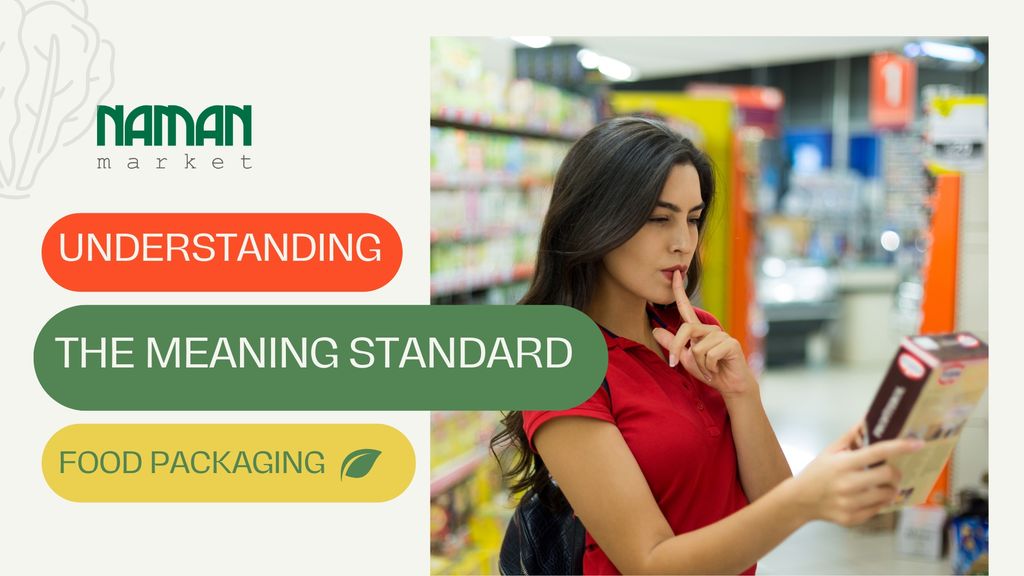Product packaging standards: Clearing the air for intelligent buyers.
These days, a lot of people are confused about how to select safe and high-quality items among an array of brands and varieties. Understanding the significance of the standards on the product packaging is an useful "secret" to help you make a wise selection in addition to depending on flavor, brand, and price.
This post will assist you in understanding popular "mysterious standards" like gluten-free, JAS, USDA, HALAL, and so on, enabling you to confidently select goods that meet your demands and guarantee quality you and your family.
Standards for product quality
The use of organic goods is becoming more and more common these days. The rationale is that these goods are made without the use of risky substances and are made entirely naturally, protecting the health of the consumer. The following are standards for product quality:
- Organic: When a product has at least 95% organic components and just 5% non-organic ingredients, it is branded as organic. The remaining ingredients can come from either agriculture or non-agriculture, but they can't have undergone radiation, genetic modification, or processing with substances that aren't allowed. employ.

Strict American and European standards are followed in the production of Bien Hoa organic sugar at Nam An Market. To assure high-quality organic sugar products, no inorganic fertilizers or chemicals are used during the growth of raw sugarcane or during the production of finished goods.
- Bio: Another word for biological organic standards is bio. A product that satisfies Bio requirements is safe and does not include any chemicals that are hazardous to the health of its consumers.
- JAS: Japanese Agricultural Standards (JAS) System, or Japanese agricultural organic standards, is the short form for JAS standard.

For those with excessive blood sugar, Nam An Market's concentrated organic water coconut honey is a great product line to substitute sugar in everyday meals. The product satisfies Japanese regulations for organic agricultural products because it is created entirely organically from condensed coconut water and contains no coloring or chemicals.
- USDA: US criteria are met by organic product standards.
- BCR: The British Retail Association established and released the BCR (British Retail Consortium), a global standard for food safety. Products that adhere to BCR standards will be closely monitored throughout, following the British Retail Association's guidelines.

Coquelet Halal chicken is a high-quality chicken product that is suitable for Muslims and is bred and killed in accordance with stringent Halal guidelines. This bird was grown organically, yielding succulent, crispy, and chewy flesh.
- Global-gap: fresh products (fruits, vegetables, meat, fish, shrimp, etc.) are grown or produced in accordance with safety regulations for consumers worldwide.
- Viet-gap: Vietnamese consumers are provided with fresh items (vegetables, tubers, fruits, meat, fish, shrimp, etc.) that are grown or manufactured in accordance with safety regulations.
Standards for product components
- Non-GMO or GMO-free: The product is free of components that have undergone genetic mutation. The term "non-GMO" (non-genetically modified organisms) describes foods that have not undergone genetic modification, do not utilize genetically modified seeds, and do not provide genetically modified food to animals.

HiFarm Pistachios are a product that offers you complete peace of mind, pure flavor, and complies with GMO-free requirements.
- Gluten-free: the product is devoid of gluten. Barley, couscous, wheat flour, and rye flour all contain gluten. Some people purchase gluten-free items because they are intolerant to gluten. Consequently, the maker will label cakes or pasta that isn't prepared with wheat flour as gluten-free on the container.

Premium quinoa product Quinoa Sottolestelle is gluten-free by certification, guaranteeing safety for celiac disease sufferers and gluten-sensitive individuals.
- Vegan: In Vietnamese, vegan refers to a product that is entirely plant-based and unrelated to animals (i.e., it contains no dairy, cheese, or honey).
- Vegantarian: A food classified as vegetarian may still contain milk or honey, but it will not contain any components derived from animal flesh. Vegetarian products are defined as such.
Production and animal husbandry standards
- Fair-trade: Goods bearing the Fair-trade mark are made in a way that balances the interests of producers, workers, and the environment. With this certification, the factory can demonstrate that it pays fair wages, doesn't utilize child labor, preserves the environment by not discharging garbage into it, and doesn't use chemicals that are bad for both the environment and its users. schooling...
- Ecological farming: is the practice of releasing animals into their natural habitat and allowing them to grow up there.

A premium dried shrimp product, Wild Shrimp Dried Shrimp is created from the freshest black tiger shrimp, which are farmed using crop rotation and environmentally friendly practices.
- Cold-pressed: To preserve the nutritional value of the pressed plant, cold-pressed oil is extracted at a low temperature.
- IQF: A product known as Individual Quick Freezing, or IQF, is frozen and separated rapidly. IQF and block-freezing are two very separate concepts. Nearly all of the nutritional value of food frozen with IQF technology is retained, giving them the same quality as fresh products.
- Wild-caught: Wild-caught seafood is frequently found in lakes, rivers, and oceans.
Customers may select items that are safe for their health by being aware of the standards for product quality. It is hoped that this post has given you helpful knowledge to select wisely.

















